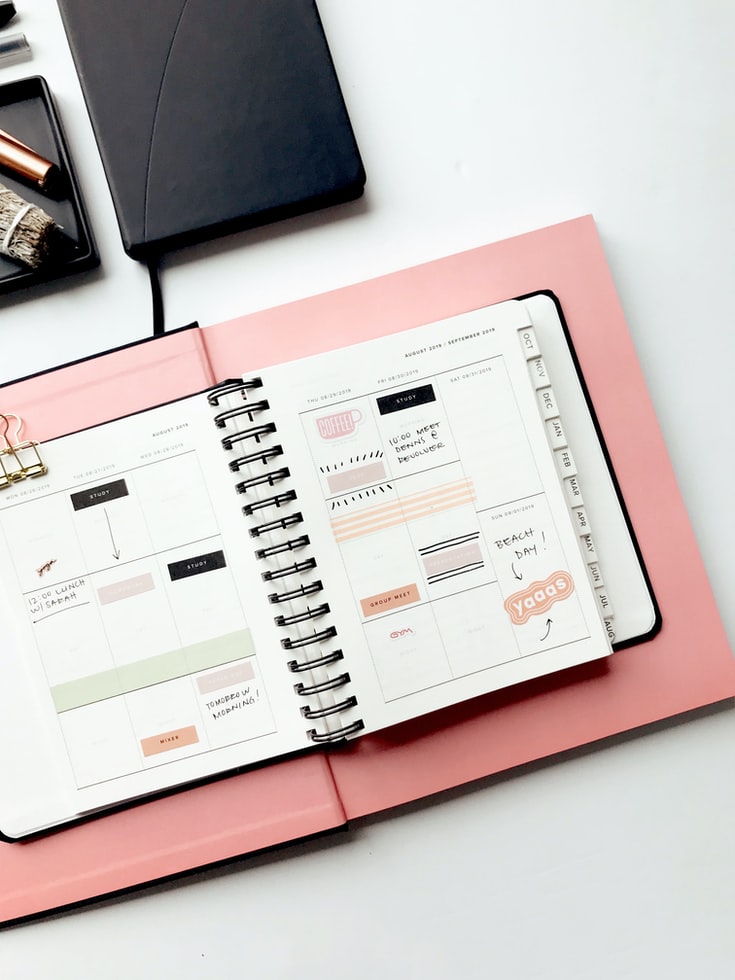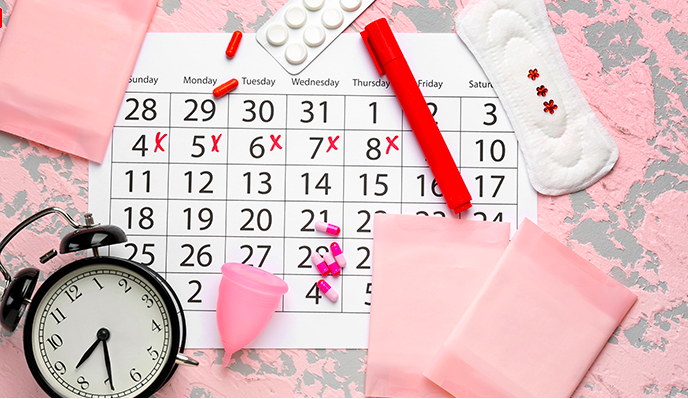Do you know about cycle syncing?
Don’t worry, I didn’t either. For the first 20 years of having a period I struggled through PMT, exhaustion and breakouts. For years I helped women with fertility issues, anxiety, insomnia and amenorrhea wondering if there was something to prevent these symptoms happening in the first place.
Here’s the thing. Men and their cycle set the schedule and this has been the case for hundreds of years. This is mainly due to the fact that scientific studies are never done on women during their reproductive age so there is not enough research to support a woman’s cycle. Furthermore, our menstrual cycle has been considered ‘hysterical’ or ‘mystical’ for hundreds of years. Elinor Cleghorn in Unwell Women writes how: “For too long, menstrual and gynaecological pain has been minimised as the ‘natural’ and inevitable consequence of being female.”
Men have a circadian rhythm and, because of our lack of research into women’s cycles, this is what we have based our working day around for years. Men are most productive in the morning as their testosterone is high so morning intercourse, morning exercise and tackling projects early work well.
Men are then more social around 4pm so happy hour and relaxing in the evening suits them, followed by sleepiness as testosterone dips in the late evening. Sound familiar? This is our daily routine and it is great for men but this is not a routine that allows women to thrive. Imagine if there was a cycle that meant you could feel more productive, reduce PMT and increase your sexual health.
Well, there is. It is called following your infradian rhythm. What is an infradian rhythm? Put simply, your infradian rhythm is working with your menstrual cycle to support your body’s monthly shifts. Dr Catherine Wooly from North Western University proved that a woman’s cycle creates a 25% brain chemistry change throughout her monthly cycle. Our cycle affects our metabolism, immunity, cortisol, stress response and reproduction. This means that we should be adjusting our routine for each stage of our monthly cycle; menstrual, follicular, ovulation and luteal.
Our period is one of our main pillars of health yet is still seen as an ‘inconvenience’ or something that we need to ignore. If I can recommend anything it is to consider your period as one of your body’s greatest health signals and to respect what your body is telling you through your cycle. If you do this, you will notice the biggest difference to your health.
How can I cycle sync?
For men, doing the same thing every day for the month can boost their health but for women it can increase the stress load on the body. For example, a man can do a HiiT class every day if he wants to; if a woman does HiiT at the wrong time in her cycle it will store fat, reduce muscle and increase your stress response. So, your goal is to not eat, exercise or have sex in the same way every day of the month. Here’s how you can do it. Please note that this is based on a 28 day cycle; you should listen to your individual cycle, dietary and fitness needs.
Menstruation: Evaluate and reflect
Overview: During your period your hormones fall to their lowest level and there is a great deal of communication between your right and left sides of the brain. So this is a great time for evaluation, communication and reflection. If you have a project on, take this week to reflect on what is working well and what needs changing. Don’t try to tackle anything new until you have evaluated where you are right now.
Exercise: With regards to exercise, you can consider napping as your exercise this week! Your body needs rest and replenishment. As your period finishes gentle exercise like yoga and walking also work well.
Food: During menstruation your lose blood and, therefore, nutrients. You should replenish with fats and proteins, iron and zinc like seaweed, kelp, good quality organic red meat and dark leafy greens.
Follicular: Say yes to new things
Overview: Your hormones are slowly increasing after menstruation, especially FSH to help your egg mature. This week is all about creativity, brainstorming and trying something new. This can be in the workplace or even in the bedroom. You will find you are more interested in sex around this time so it is a great time to get under the covers.
Exercise: Try something new! Dance, cardio, zumba, whatever you feel like but make it fun and creative.
Food: Again, it is all about trying new things; fermented food is great for your gut at this time as well as eating the rainbow with raw vegetables.
Ovulation: It is all about connection
Overview: This week is one of two halves. The rise in FSH hormone continues followed by a rise in luteinizing hormone to release the egg. Testosterone also rises which increases desire in the bedroom, then stops at ovulation. The start of the week is all about connection with your partner and post ovulation is all about connection with others so feel free to make plans with your favourite friends.
Exercise: Pre ovulation you have energy to burn so HiiT and cardio are good for you. However, when you ovulate it is time to wind down the exercise so you do not disrupt the delicate hormonal shifts. Move to pilates and strength training.
Food: Post ovulation it is all about reducing the surplus oestrogen and preserving progesterone dominance. Magnesium is fantastic for this so leafy greens such as kale, swiss chard and lentils are good here. Broccoli is also your superhero.

Luteal: Winding down
Overview: I always get a surge of energy to complete tasks before my period, This is apparently due to the rise in progesterone. However, this is the most important week to really tune in to your body and respect it. Around day 21 your progesterone spikes and you do not want to disrupt it so gradually slowing down is crucial.
Exercise: Strength training pre day 21 works well but from the progesterone spike you could start slowing down with yoga, walking and pilates. It may sound frustrating but it makes all the difference to your PMT and period health.
Food: Pre day 21 vitamin c helps to boost progesterone so sweet potato, pumpkin and brussel sprouts. Sweet potato and other root vegetables are brilliant for helping to pass excess oestrogen through the body too. In fact, anything that can help your bowel movement such as fibrous food, flax and quinoa are all recommended.
Please note, dietary needs and exercise schedules depend on your own needs and fitness ability. My recommendation is that you start to tune in to your body and understand what it needs across the month. I told a friend about the infradian rhythm recently and she remarked that she always craved potatoes before her period but stopped herself because she thought it was unhealthy. Those potatoes were exactly what her body needed to support her hormonal changes. So start a monthly diary and note down how you are feeling each week of the month; you will be amazed at what your body is telling you.





Leave a Comment
You must be logged in to post a comment.